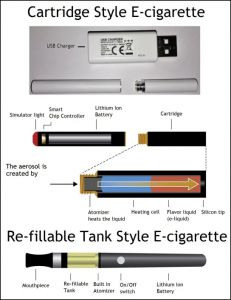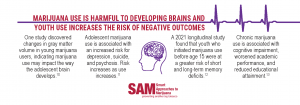If you feel that someone you know or yourself is in immediate danger call Mobile Mental Health at (888) 750-2266.
The Suicide Prevention and Mental Health Crisis Line
This is a toll-free confidential helpline to support people in need of mental health counseling. When people call or text 988, they will be connected to trained counselors within the existing National Suicide Prevention Lifeline network. 988 offers 24/7 access to trained crisis counselors who can help people experiencing mental health-related distress. That could be: Thoughts of suicide, mental health or substance use crisis, or any other kind of emotional distress. Anyone can call or text 988 or start a chat at 988lifeline.org for themselves or if they are worried about a loved one who may need crisis support. 988 serves as a universal entry point so that no matter where you live you can reach a trained crisis counselor who can help.
Make Your Home Suicide Safer is a guide that helps reduce the risk in your home with suggestions for changes to consider.
The National Child Traumatic Stress Network is an organization that seeks to raise the standard of care and improve access to services for traumatized children, their families and communities throughout the USA.
Depression
Lessons4Living helps people dealing with depression to understand depression.
Bereavement
The Dougy Center provides grief support resources for parents and caregivers.
Help Guide provides many resources for dealing with grief.
National Institute of Mental Health
If you or someone you know has a mental illness, is struggling emotionally, or has concerns about their mental health, there are ways to get help.
The National Alliance on Mental Illness, NAMI, is the nation’s largest grassroots mental health organization dedicated to building better lives for the millions of Americans affected by mental illness.
Preventing Self-harm in Teens: A Guide for Appropriate Intervention
Teens have the highest rate of self-harm among any age demographic, with approximately 17% of teens reporting at least one instance of self-harm in their lifetime. The average age of the first incident of self-harm is 13. Often teens will seek out support from loved ones rather than mental health professionals. However, many teens will take extraordinary steps to conceal their self-harm, or even deny engaging in such behavior.
Bullying Resources:
- http://www.stopbullying.gov/
- http://www.education.com/topic/school-bullying-teasing/
- http://www.educationworld.com/a_special/bully.shtml
- http://www.pacerkidsagainstbullying.org/
Health Issues
Eating Disorders
Link for identifying and helping those who may have eating disorders such as anorexia/bulimia.
EpiPen Savings
Mylan offers saving programs for EpiPen® Auto-Injector and its authorized generic.
Head Lice
The American Academy of Pediatrics, as well as the National Association of School Nurses both, advise against excluding a child with lice from school. Attendance at school is critical to a child’s academic success. Excluding a child from school because of a head lice infestation is futile as far as preventing the transmission of lice to other children.
Parents may read information on identification and treatment of head lice to learn how to identify head lice. Parents may also read about lice on the Center for Disease Control’s website.
MRSA
Methicillin-resistant Staphylococcus aureus (MRSA) is a cause of staph infection that is difficult to treat because of resistance to some antibiotics.
Staph infections—including those caused by MRSA—can spread in hospitals, other healthcare facilities, and in the community where you live, work, and go to school.
You can help prevent infections and stop the spread of MRSA.
Teen’s Health – Parents, Kids, Teens, Educators
Teen’s Health offers a variety of resources for teens and parents about various topics dealing with health and wellness. Topics include drugs, alcohol, sexual health, diseases, nutrition, and staying safe.
Alcohol and Drug Issues
Quick Tips on THC and Vaping
The use of THC among young people has transformed from a low concentration flower to a highly potent, highly processed substance in the form of concentrated oils, waxes, and “legal” substances called “K2” and “spice”. This synthetic “marijuana” is marketed as THC, but contains other synthetic compounds that are unregulated and dangerous when inhaled.
Marijuana Potency Over the Years
1970s – 1 to 3%
2009 – 9.75%
2018 – 14.8%
The Concentrates Potency
2008 – 6.7%
2017 – 55.7%
2021 – 95 to 99%
What are the Health Effects of Concentrates?
“Concentrates can deliver extremely large amounts of THC to the body quickly” (NIDA, 2020). This increases the risk not only physical dependence, but anxiety, agitation, paranoia, psychosis, decreased perception and coordination, and increased heat rate.
Vape Devices come in Multiple Shapes and Sizes

Image source: American Journal of Medicine, 2015
Some vapes or “e-cigs” are single use/disposable. Others can be modified and recharged to use over and over. THC can be found in disposable vape pens at dispensaries or in re-fillable tank style vapes.
The Bottom Line

Higher concentrations, little regulation, easier concealment, and higher stress levels among teens creates a perfect storm for an increase of vaping related health concerns.
Additional Information
- Smart Approaches to Marijuana
- National Institute on Drug Abuse
- American Addiction Centers (AAC)
- Talk2Prevent Parent Parent Toolkit
- Narcotics Anonymous
- Rehabs.org
- National Institute on Drug Abuse
VCHS Student Assistance Counselors
- Lacey Benjamin
(845) 457-2400, ext. 17643 - Samaria Gray
(845) 457-2400, ext. 17647 - Catherine Heil
(845) 457-2400, ext. 16241 - Patricia Bishop
(845) 457-2400, ext. 16614
Al-Anon
Al-Anon hosts substance abuse meetings. The website shows locations in Orange County, as well as information on how to help those who have addictions.
Dealing with Substance Abuse
The Partnership for Drug-Free Kids assists with substance abuse problems by identifying and helping those who may have substance abuse problems.
Start Your Recovery provides helpful information for people who are dealing with substance use issues- and their family members, friends, and co-workers, too. There is no one-size-fits-all solution to the challenges faced by those who misuse alcohol, prescription or illegal drugs, or other substances. Their goal is to offer people who are dealing with substance use issues a single source of reputable, objective information about signs, symptoms, conditions, treatment options, and resources- presented in a user-friendly format and in language that’s easy to understand.
Detox.com is a network of addiction treatment facilities that provide drug and alcohol detox, support, and comprehensive substance abuse treatment services to the individuals and families struggling with addiction. In addition to offering medical detox in safe, controlled stabilization units, we also offer a wide range of patient care services for ongoing addiction treatment and recovery needs.
Local Resources
- The Alcoholism and Drug Abuse Council of Orange County
- New York State Office of Addiction Services and Supports
Available School Support
Universal Drug education within the mental health curriculum. Vape educate-Online educational program for indicated populations. Teen Intervene-Evidence-based program offered to students within the school environment. This is an SBIRT model, screening, brief intervention, and referral to treatment, that is short-term, effective, and goal-directed. One-on-one support from a Credentialed Alcohol and Substance Abuse Counselor (CASAC-T) within the school setting. Outside referral to a therapeutic program that supports students’ education while addressing early stages of concerning use and other addiction-related issues
Dealing with Opioid Addiction
Hope Not Handcuffs is an initiative aimed at bringing law enforcement and community organizations together in an effort to find viable treatment options for individuals seeking help to reduce dependency with any substance including heroin, prescription drugs, and alcohol.

